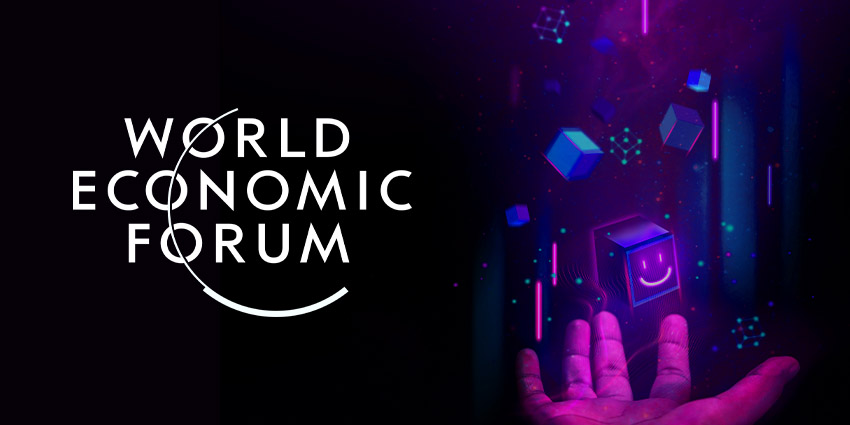The World Economic Forum (WEF) is investing heavily in the future of the metaverse, Web3, and the transformation of the XR landscape. During the group’s annual meeting in Davos 2022, WEF outlined a new initiative titled “Defining and Building in the Metaverse”.
The new program aims to bring together leading voices from across the policy, academia, private, and civil society landscapes to help formulate a new strategy for the future of digital interactions.
The initiative is built around WEF’s vision of creating a more purpose-driven, inclusive future for the metaverse, ensuring future interactions in XR are beyond are safe, interoperable, and economically viable. Already, this vision has captured the attention of some of the world’s marketing leading XR brands. For instance, Microsoft and Accenture partnered with WEF during the Davos event to begin construction of the new “Global Collaboration Village”, designed to bring people together through XR experiences focused on collaboration and innovation.
The Rising Focus on Web3 and the Metaverse
The WEF is far from the only group to discuss the future of Web3 and the metaverse at this stage. However, it is one of the key players invested in shaping what this future economy might look like. The latest WEF initiative aims to address some of the key concerns surrounding XR innovation as we move towards a Web3 future, such as governance, policy control and inclusion.
WEF’s focus on building a safe and modern Web3 environment stems from its increasing research into the digital landscape. Recently, the WEF team shared insights from a McKinsey study, highlighting the prediction that many younger consumers in Generation X, Z and the Millennial landscape will spend around 5 hours per day in metaverse environments. This is on par with the 5 hours most consumers usually spend interacting with their television sets.
At the same time, evidence is beginning to mount around the idea that the metaverse and Web3 technologies will soon create a new version of the future of work. According to one WEF report, concepts such as the blockchain, cryptocurrency, NFTs, and Decentralised Autonomous Organisations (DAOs) will soon transform the workplace as we know it.
Forum members said these technologies have the power to digitally reconnect businesses and communities, paving the way for better innovation, collaboration, and inclusion in the years ahead.
Paving the Way for New Economies
At the heart of the WEF group is a commitment to understanding and supporting the global economies which keep our world turning. If the metaverse and Web3 do have the potential to create new ecosystems for work, and new community experiences in the years ahead, there’s little doubt they’ll impact our economies too.
Already, the impact of NFTs, cryptocurrency and blockchain technologies are disrupting the world as we know it, building new monetization options for the creator economy and changing the ways employers reward and compensate staff.
The WEF team even believes Web3 innovations will have a long-lasting impact on various industries in the global economy. In the past, the group has discussed how metaverse solutions and XR could help tourism companies to reconnect with their consumers in the post-pandemic landscape through virtual visits to distant locations and XR travel.
In the industrial landscape, WEF sees incredible opportunities in the development of “industrial metaverses”, designed to strengthen the interactions between humans and the machines they work with. According to a session from the recent Davos event, web3 and XR technologies will pave the way to safer, more collaborative workplaces for industrial professionals.
These tools and technologies could also open the door to new revenue opportunities for brands and reduce common threats connected with data and security. However, WEF does not an industrial metaverse and has a lot of challenges to address, from customer experience to data management.
WEF’s Vision is Already Emerging
WEF’s vision of the metaverse is already inspiring and driving action from members of the XR landscape. During the latest 2022 WEF event, market-leading AR manufacturer Magic Leap announced a strategic partnership with Globant, intended to accelerate XR enterprise adoption. At the event, attendees had an opportunity to test out the most recent Magic Leap headset and learn about upcoming devices and tools.
Elsewhere, groups and governments have already begun implementing their own strategies for Web3 and the Metaverse, aligning with WEF’s vision of security, inclusion, and ethical practice. INTERPOL recently revealed a novel metaverse law enforcement strategy alongside an expert group of specialists in the metaverse, focused on addressing law enforcement concerns.
As the age of Web3 emerges, many government groups will be looking for ways to make interactions in the metaverse more secure and reliable. Some have even begun to introduce their own Metaverse experiences. For instance, Barbados became the first country to enter the virtual world with its own Decentraland embassy. Dubai has also launched a new Metaverse strategy designed to attract thousands of new jobs and billions in capital to the city by 2027.
The Middle Eastern Finance Hub has even launched a MOHAP metaverse to support residents of the UAE in accessing medical care, while South Korea and Shanghai have announced their plans to invest in web3 experiences in the years to come.
Building a Strategy for Web3
Through continued research, partnerships, and innovation, WEF plans to create a future where web3 technologies, XR, and even cryptocurrency can work together to transform the world we live in. It believes effective metaverse experiences are on the horizon for many of us, but only if we can create environments that are safe, inclusive, and accessible.
WEF isn’t alone in its vision. Other leading XR groups, such as the XR Association, are doubling down on their commitment to assist developers and technology leaders in the creation of a new Web3 landscape. In 2022, we even saw the introduction of the new Metaverse Standards Forum, built to help formulate the interoperability standards required for an open digital landscape.







